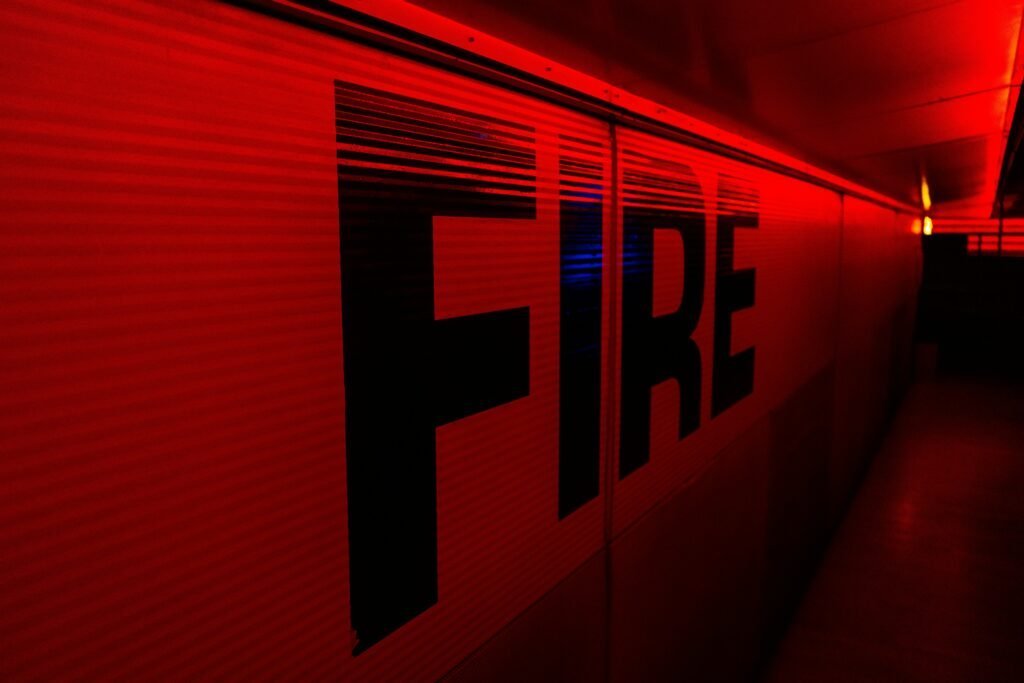Legal services
What does this cover?
All licensed premises are governed by legal responsibilities relating to food safety, health & safety and fire safety.
Introduction
The hospitality sector has seen huge growth in recent years. There are now more restaurants, pubs, bars and takeaways available to the public than at any time in our history.
Whilst that is great for the sector – and the economy as a whole – this does raise the serious issue over food safety and general health and safety.
This is because all licensed premises, and other businesses, are governed by legal responsibilities relating to health & safety, food safety and fire safety.
Whilst there are separate legislative frameworks for each, they are all similar in requiring operators to take proactive steps to ensure the safety of patrons and staff, as well as the cleanliness and hygiene of the premises themselves.
Broadly speaking, operators are required to have policies in place to achieve these aims, carry out risk assessments to identify any hazardous aspects of the operation, and to put in place steps to mitigate any such risks.
It is also important to have training records to demonstrate that staff have been trained in respect of both the policies themselves as well as the risk assessments.
Ensuring that all of the above is in place and regularly reviewed will be imperative in passing routine inspections by the authorities or, indeed, should the worst happen and something goes wrong such as an accident, outbreak of food poisoning or even a fire.
Establishing good preventative systems will assist in any ensuing investigation and reduce the chances of prosecution.

Food, safety and hygiene
Food safety
The area of food safety is obviously one of significant concern to operators and in relation to which there is a high degree of enforcement. An increase in reports of food poisoning and the growth of the 1 to 5 star Food Hygiene Rating Scheme, or ‘Scores on the Doors’ as they are often called, means that the area of food safety has a higher profile than ever.
A complaint from a customer or a random inspection from an environmental health officer can lead to a highly detailed inspection of the hygiene and cleanliness of your kitchen and bar; together will a full assessment of the systems which you had in place to ensure that problems do not arise.
You are expected to have a hazard analysis system in place (HACCP) to ensure that both food and drink are appropriately hygienic.
It is a legal requirement to have a documented hazard analysis system in place.

A hazard analysis system essentially involves undertaking the following steps:
- An analysis of the potential food hazards in the food business operation – common examples would be bacteria, cleaning chemicals or foreign objects;
- Identifying the points at which food safety hazards may occur – common examples would be storage, preparation, cooking, reheating etc;
- Deciding which of the points identified are critical to ensuring food safety – this will essentially be any stage where the food may become contaminated;

- Identifying and implementing effective control and monitoring procedures – these are essentially the checks that you will put in place to eliminate the hazards already identified;
- Reviewing the system – this is not just an exercise which you need to carry out once. It needs to be constantly monitored and reviewed to ensure that it is working properly. If you add new menu items then the process needs to be revisited. Similarly, if you employ a new staff member then you will need to do the same.
It goes without saying that significant damage can be done to the reputation of a business in the event that there is, for example, an outbreak of food poisoning. Equally, fines can be unlimited in food safety matters.
Prosecution is particularly likely in the event that pest problems are found at the premises.
Environmental health officers and courts alike are not terribly keen on the idea of rodents or cockroaches infesting a kitchen.
And don’t forget, the enforcement authority has the power to close down food business operations if they believe the health condition is met.
This is because, under the Food Safety and Hygiene (England) Regulations 2013, an authorised officer from an enforcement authority can close a premise by issuing a Hygiene Emergency Prohibition Notice (HEPN) to the food business operator, if they believe the health condition is met. The health condition being, that there is a risk of injury to health.
The enforcement authority can then apply for a Hygiene Emergency Prohibition Order (HEPO) from the Magistrates Court. This validates the Notice which was served, and enables the prohibition to continue until the enforcement authority is satisfied the health condition is no longer fulfilled.
Food, safety and hygiene
Health & safety
All employers have a duty to ensure the health, safety and welfare of their employees and all third parties on their premises.
The key elements of doing so are essentially as follows:
Health and Safety Policy
A written Health & Safety Policy should be in place outlining exactly how your business goes about managing its health and safety responsibilities and who takes responsibility for what. It therefore describes the whole system. It should incorporate training and the carrying out of risk assessments. It is a good idea for it to state exactly where all of the documentary elements are kept within the premises.
The Health & Safety Policy should be signed and dated by a director or partner of the business or a senior member of staff. It should also be reviewed on a regular basis to ensure it is kept up to date.
Training
All staff need to be trained on the Health & Safety Policy. They will also need to be trained in respect of potential hazards contained in any risk assessments which have been carried out in relation to issues involved in their particular role.
That training needs to be carefully documented and regularly refreshed. It should be stored carefully so that it looks professional if it ever has to be produced in the event of a problem.
Risk Assessments
These must be carried out in respect of any activity involved in the running of your business to determine whether there is a hazard which creates a risk to the health and safety of the employee.
If there is a hazard then procedures must be put in place to minimise or eliminate the risk of injury. All of this must be documented and regularly reviewed. If something changes operationally within your business then this change will need to be reviewed to identify the potential for hazard and an appropriate risk assessment provided.
It is not therefore simply a question of carrying out this process once but rather of it being an ongoing process.

Food, safety and hygiene
Fire safety
Fire Officers are no longer involved in the assessment of licensed premises to the extent that they used to be. The duty is very much placed upon a “responsible person” within your business to carry out a fire risk assessment. This is done in very much the same way as it is done for health and safety. It must identify hazards and the measures which have been put in place to minimise or eliminate the risk associated with the hazard. The whole process must be one of continuing review.
The reason that the areas of health and safety and fire safety are so important is, apart from anything else, because no employer wants to be responsible for the death or serious injury of an employee. The Corporate Manslaughter legislation brings in even higher penalties for businesses in the event that someone is killed as a result of their negligence.
Even general health and safety and fire safety offences can be punished with unlimited fines. The Courts used to treat such matters fairly leniently but these days are much more anxious to send a message to the Board of Directors.
In the case of a prosecution following a death, offences prosecuted under the Health and Safety at Work Act and those under the Corporate Manslaughter legislation, have revised sentencing guidelines.
The guideline equip the Courts with the ability to award much higher financial penalties for companies, and provides a much higher risk of a custodial sentence being awarded to an individual. For companies with a turnover of £50 million or more, fines can be expected to be in the millions.
Once again, these are complex areas of law with the first stage of prosecution likely to be an invitation to an interview under caution. The risks are simply too high not to have legal advice in respect of these matters.
When a serious accident or incident occurs, a notification to your inurers will be required. You are not bound to use the panel Solicitors that your insurer recommends. You are free to choose your own Solicitor. Take legal advice of your choice as soon as possible.
Food, safety and hygiene
Interviews under caution
In relation to all of theses areas of regulation (and many others) the investigating officers will usually “invite” you to an interview under caution as put of the evidence-gathering process. This is not a friendly chat.
How you respond to questions may be critical in reviews of whether you get prosecuted or not. Equally it may have a significant bearing on whether you are found guilty, and, indeed, the level of fine imposed.
It is important to realise that all of these areas can result in fines of 10s or even 100s of thousands of pounds.
Legal advice is imperative.
The consequences are too serious to take any chances!
And what you might not realise is that you are not bound to use the panel solicitors that your insurer recommends. You are free to choose your own solicitor.
Either way, it is important that you take legal advice as soon as possible.
